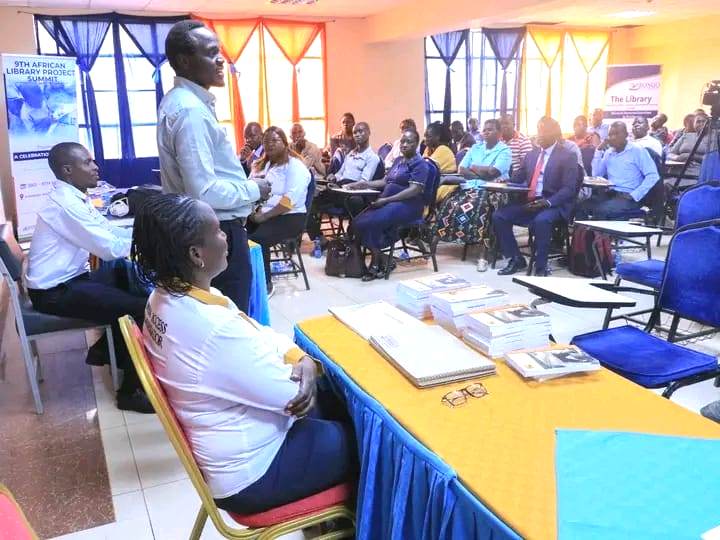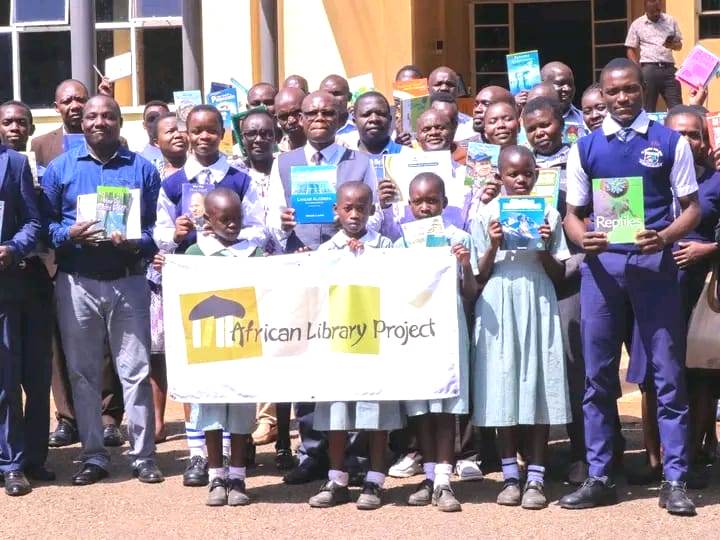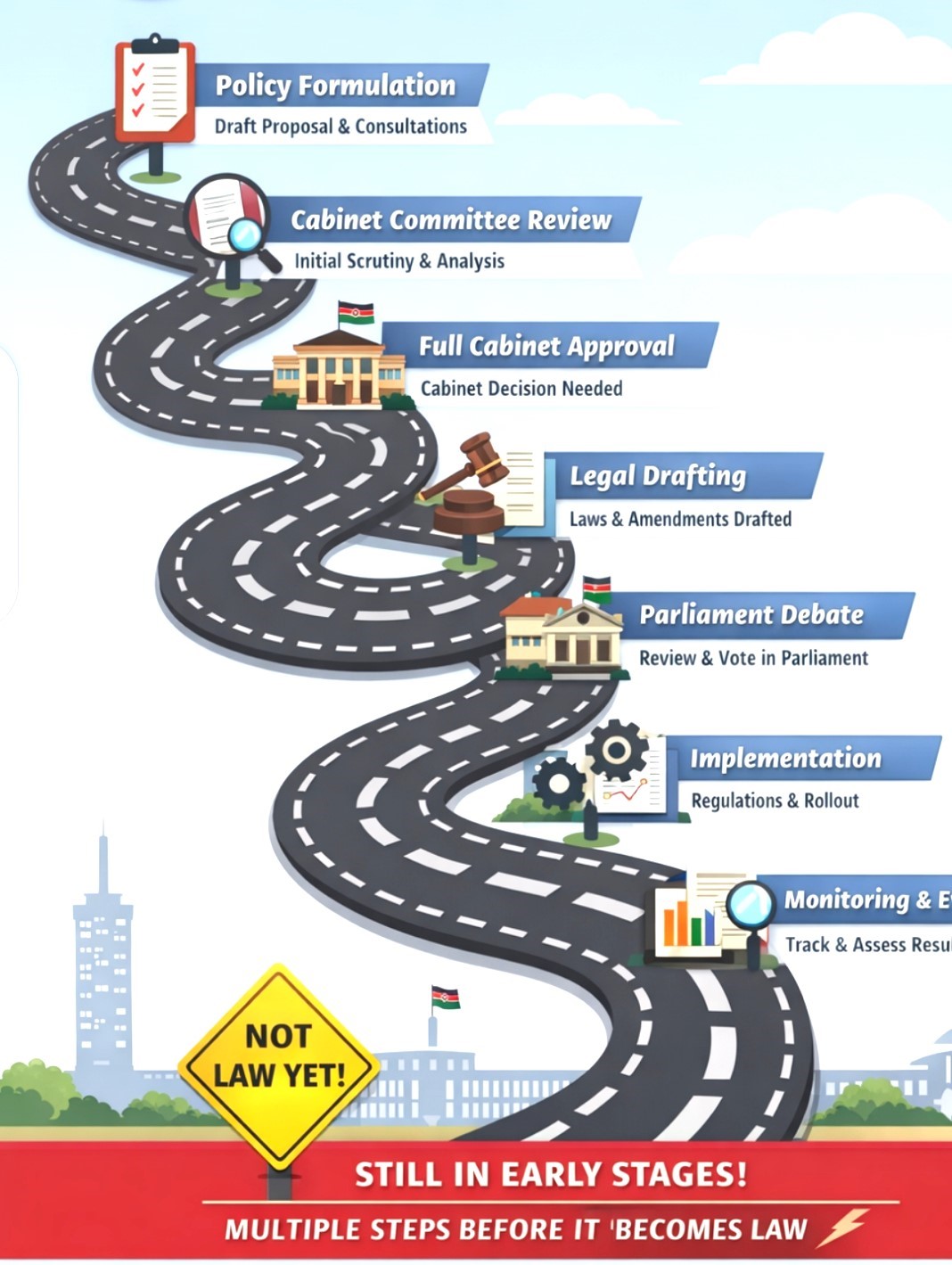Teachers, librarians and other schools representatives both from primary and secondary schools from Migori and Homa Bay counties had a reason to smile in the last two days of last month.
This is after Rongo University courtesy of African Library Project (ALP) hosted a special training for them within the university.
The exercise commenced on May 30, this year, where larger part of this day mainly focused on the training.
During the day, the attendants and all other book lovers were taken through a number of topics related to promotion of reading culture among school kids, setting up the library and its management.
Professor Daniel Tarus, Deputy Vice Chancellor, Administration, Finance & Planning shed more light on why it’s a necessity to have a reading culture.

“Somebody who really wants to get knowledge you need to read from page one up to the last page. People taking Literature will tell you that one is supposed to read a whole book and by the time you reach at the end you ask yourself, what have I learnt? And one should be able to narrate that particular story from that book from the beginning up-to the end. That’s reading.” He said.
Prof Tarus who was also standing in on the behalf of the Vice president Prof Samuel Gudu who was to grace the occasion, while finalising on his speech, articulated on how best a reading culture can be built.
“The more reading we make, the more culture we build and the more informed we become.”
He also thanked the teacher-librarians for sacrificing their precious time and attending to the training.
He also thanked the organisers stating the importance of coming up with such like programmes.
Joel Nakitare, Rongo University’s senior Librarian was not left behind. Being among the keynote speakers and organisers, addressed on the appropriate ways of ensuring there’s growth and sustainability of the libraries. He advised the teacher-librarians to be involving the PTA and other stakeholders in ensuring the library grows and serves its appropriate purpose.

“Involvement of PTA and other stakeholders like pupils, school BoM members and community at large will really help in the growing of our libraries,” he stated.
Nakitare also wished the audience not to be extremely money-oriented as it limits reading and literacy opportunities when money is prioritised neglecting literacy promotion.
“There’s still so much to learn. Seek for those opportunities and don’t tie them on money. I’ve been around long enough to see people who’ve tied everything on money losing a lot of opportunities just because of that. Seek opportunities to know and understand how to grow the library and make it a bit more active and impactful. Be taking part in literary events and forums.”
He also touched on the maintenance of books while cautioning teachers against punishing students who return the books when in bad condition as this would make many of them not to read but just keep them.
“Whenever I go to the library and find very new books I always get very worried. This is because these books are never given out to be used. Even the clothes that we are wearing always get torn so how comes with books teachers when a book is torn then somebody is pushed left, right and centre. Let kids have time with books. If we insist that the books should be clean as they were issued it means that they won’t read them,” he said.

Other speakers also encouraged teacher-librarians to be the key leaders in creating and cultivating the reading culture among school kids.
On the second day, May 31 was the D- Day. Here, almost all the spaces around the school were parked with vehicles and all other means of transport ready to receive and transport the received books to various schools.
This day was truly packed with events like trainings, tree planting and lastly the main activity of the day; books donation.
In the morning, around seventy attendants comprising teachers, head teachers, deputy head teachers, librarians and others representing approximately thirty five schools were directed to an open field segregated within the university to take part in the tree planting exercise.
Prof Nyamai Daniel, professor of Agroforestry and Environmental Conservation, encouraged them to be planting trees that are friendlier to the environment.
Prof Wilson Otengah, Director of Open Distance Learning who was also representing the Vice Chancellor on this day sensitised on the importance of taking part in this exercise.
“Some of these huge trees were planted by people who may not be existing today but you can see how beautiful and how much benefits we are getting from them,” he started.
Nakitare, the senior librarian launched an initiative dubbed #OneBookOneTree demanding each school representative to plant the tree equivalent to the total number of books one will be going to receive. While addressing the press, Nakitare said that the move seeks to promote a greener environment as one way of mitigating climate change. In support of this initiative, University also donated free tree seedlings to the participants.
Thereafter all the attendants were taken for a briefing session before the official commencement of book donation ceremony.
At this time, Dr Lameck Rono, Dean School of Infocoms said books give students an opportunity to explore the world.
READ ALSO:
“Reading books is a gateway to exploring the world and also fostering knowledge. Books will help young people understand the world and get the chance to travel,” he said. Dr Rono was also standing in on behalf of the school’s senate.
Thereafter the ceremony got officially launched by Prof Wilson Otengah and the whole process of books distribution was done. At least 40,000 books were officially handed over to the present 35 schools.
In addition, each school representative was issued with a certificate and a guide book titled “How to Set Up and Run a Small Library in Africa” authored by ALP.
Let it be remembered that this programme came a month later after the annual 9th ALP summit that brought all the stakeholders from other African countries and US in Migori, Kenya.
The event was also in partnership with Kibabii University.
By Wafula Meshack
You can also follow our social media pages on Twitter: Education News KE and Facebook: Education News Newspaper for timely updates.
>>> Click here to stay up-to-date with trending regional stories






